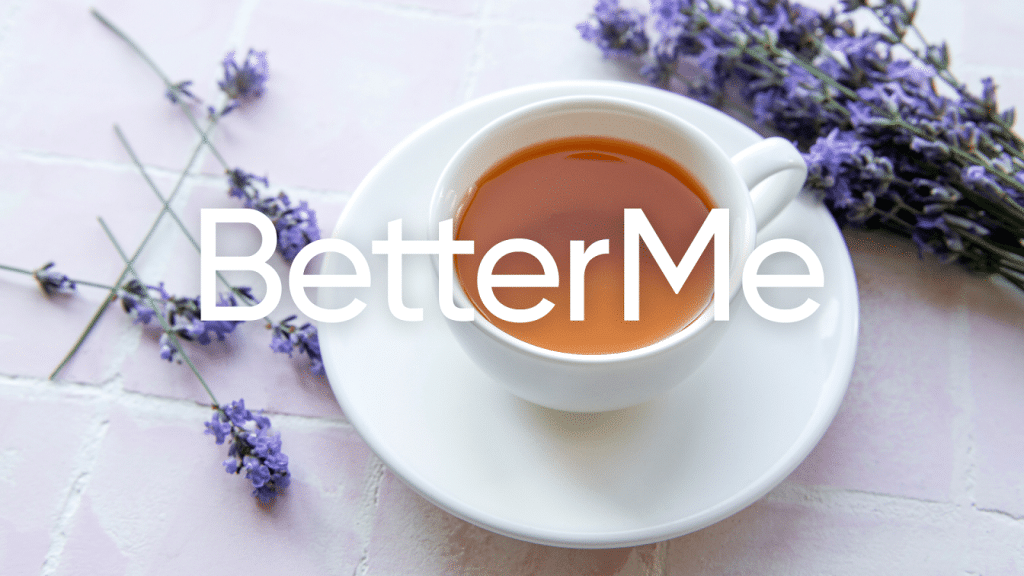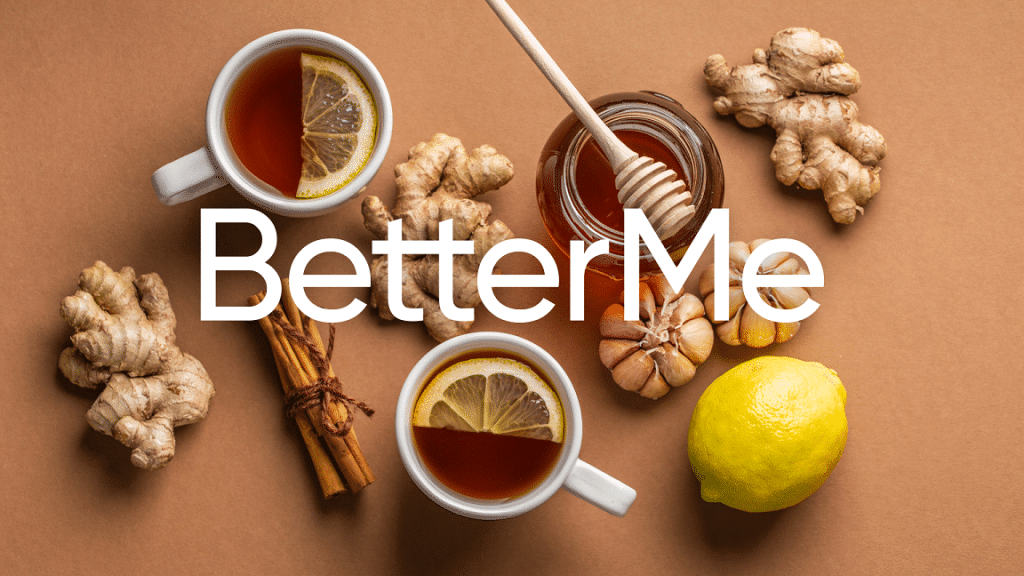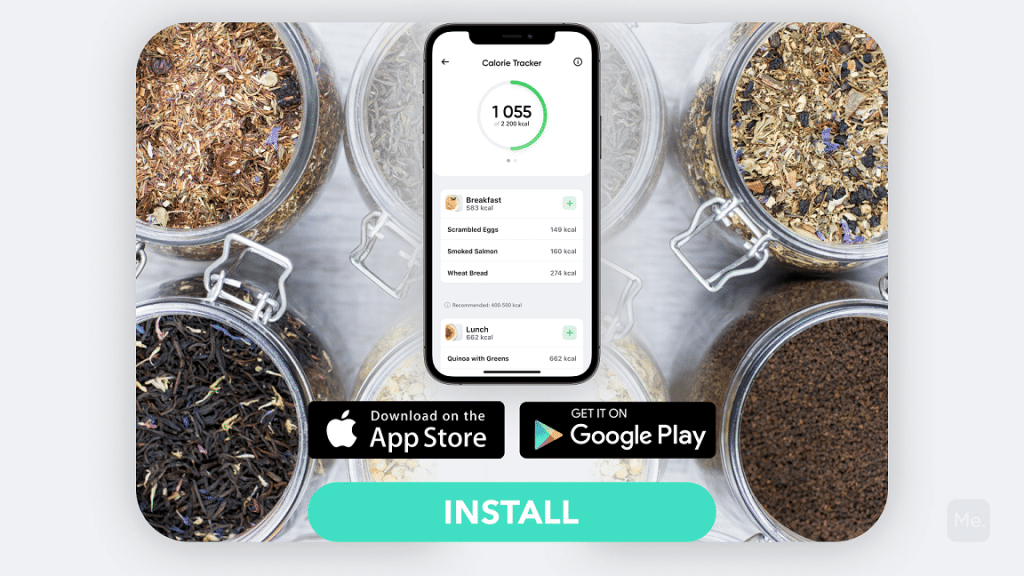Cinnamon tea is a beverage made by steeping the bark of the cinnamon tree in hot water. Cinnamon, also known as cassia, is used to flavor teas and coffees worldwide, but only recently has it become popular to use these beverages for medicinal purposes. It can be consumed cold or hot depending on your preference. There are two types of cinnamon, Ceylon, and cassia. Ceylon is considered healthier because it has less coumarin than cassia. However, Cassia is cheaper and more common. In this article, you will find some of the amazing health benefits, nutrition facts, and side effects of drinking cinnamon tea.
Get your personalized
meal plan!
Cinnamon Tea Nutrition Facts
Ground cinnamon contains small amounts of several minerals including iron, calcium, manganese, and zinc. Cinnamon also contains vitamins A, C, E, B vitamins, as well as magnesium and phosphorus (13).
With the above information, you can see that cinnamon tea is a nutritional powerhouse with many possible health benefits to offer so let’s take a look at these benefits next!
Cinnamon Tea Health Benefits
Cinnamon tea is full of beneficial compounds that may offer various health benefits. Here are science-based potential health benefits of cinnamon tea.
Loaded With Antioxidants
Cinnamon is particularly rich in polyphenol antioxidants. These antioxidants are capable of scavenging the harmful free radicals that damage cell membranes and DNA, accelerate skin aging, and lead to inflammatory diseases (3).
Polyphenol antioxidants in cinnamon have been suggested to be a natural defense against cancer, diabetes, asthma, and autoimmune diseases (3).
Suppresses Inflammation
Cinnamon is also a good source of catechins. Catechins are said to have more antioxidant activity than that of vitamin C or E (1). In fact, some experts say that they may be more effective at scavenging free radicals than vitamin C.
In short, Cinnamon tea has the potential to reduce inflammation and oxidative stress that contribute to many types of diseases from cancer to arthritis because it’s loaded with antioxidants and anti-inflammatory compounds like catechins and procyanidins (PPC) (1). PPCs are another polyphenol antioxidant that is also found in apples, grape seed extract, and green tea.
Can Improve Blood Sugar
There is some pretty strong evidence from clinical trials that cinnamon supplementation can help lower blood sugar in patients with type 2 diabetes. However, the same effect has not been seen in specific subpopulations such as type 1 diabetics or postmenopausal type 2 diabetics.
May Improve Memory
Studies done in cells and in animal models have seen potential benefits of chemicals extracted from cinnamon when it comes to preventing Alzheimer’s Disease. However, it is not clear what, if any benefit these chemicals might have in humans, and the amount of cinnamon a person would need to eat to possibly see any benefit would likely be toxic.
Read More: Mate Tea Facts, Health Benefits And Side Effects
Possible Anticancer Activity
Cancer is the second leading cause of all deaths in America after heart disease. In studies done in cell cultures and in animals, certain chemicals extracted from cinnamon were seen to prevent abnormal cell growth or stimulate death of cancer cells, apoptosis, indicating that cinnamon may have potential as an anticancer agent (1). Again this is very preliminary and based on chemicals extracted from cinnamon, not cinnamon itself.
May Protect Skin From Ageing
Skin ageing can be accelerated by environmental toxins as well as internal factors such as poor diet and lifestyle choices. Studies show that people who eat a high-fat diet have twice as much skin aging as those who follow a low fat diet, which may indicate that antioxidants play a significant role in preventing skin damage caused by oxidative stress (6).
If you’re forking out money for anti-ageing creams, you may want to reach for the cinnamon instead, because it might help slow down skin ageing by acting as an antioxidant. Cinnamon contains high levels of epicatechin which is a type of flavonoid that has antioxidant activity (1). Flavonoids are powerful antioxidants with many health benefits including reducing inflammation oxidative stress (10).
Antioxidants are also known to help protect against UV damage from sunlight exposure (in conjunction with sunscreen). Cinnamon extract has even been seen in human skin cell cultures to facilitate collagen synthesis (11).
May Promote Weight Loss
Cinnamon has been hypothesized to help improve metabolic health through increased thermogenesis (the process where your body generates heat, which speeds up your metabolism, thereby burning excess calories and fat), and increased satiety (feeling of fullness), among other mechanisms (4).
Cinnamon might also help reduce inflammation which may help prevent obesity-related problems like metabolic syndrome which includes high blood pressure, cholesterol, and insulin resistance (1).
May Prevent Digestive Disorders
Cinnamaldehyde (an organic compound found in cinnamon) has antibiotic properties that can inhibit the growth of common pathogens such as E.Coli and listeria in food products. Cinnamon contains fiber, 1.6 grams per teaspoon, which can help keep things moving through your digestive system (3). Here’s how it works: fiber binds to water in your small intestine, forming a gel that creates bulk and adds weight, which stimulates your intestines and is easier to pass.
Promotes Heart Health
Cinnamon may have an effect on glucose control, lower low-density lipoprotein (LDL) cholesterol levels, and raise high-density lipoprotein (HDL) levels. If significant, these effects would help prevent the hardening of the arteries or atherosclerosis associated with heart disease (3).
If you tend to let yourself off the hook, raise the white flag when things get tougher than you expected, send yourself on an unconscious binge-eating trip – BetterMe app is here to help you leave all of these sabotaging habits in the past!
May Help With Respiratory Problems
Cinnamon has been used in traditional medicine as a remedy for respiratory ailments, possibly due to its potential anti-microbial and anti-inflammatory properties (11).
Prevents Gingivitis And Bad Breath
Gingivitis is a gum disease you can get from not brushing your teeth twice a day and flossing regularly. It is actually an inflammation of the gums which can lead to tooth loss if left untreated. Bad breath happens when bacteria in your mouth cannot be washed away because you don’t brush or floss regularly, allowing them to grow and multiply (8).
Cinnamon contains cinnamaldehyde, which has been shown to have bacteriostatic effects against plaque-forming bacteria like S. mutans , A. viscosus , and P. intermedia. Cinnamon works against periodontal disease by suppressing various pathogens including Porphyromonas gingivalis (a major cause for periodontal disease) (8).
Cinnamon can also freshen your breath after a meal because cinnamon kills certain kinds of “bad” oral bacteria associated with bad breath.
Reduces Menstrual Cramps And Other PMS Symptoms
The anti-inflammatory properties of cinnamon have been seen to help reduce menstrual cramps, although not as effectively as medications like ibuprofen. This may be because the anti-inflammatory properties of cinnamon help reduce prostaglandins that stimulate uterine contractions (12).
Cinnamon Tea Side Effects
For most people, eating small to moderate amounts of cinnamon, such as the amounts commonly found in foods, is generally safe. Although not common, too much cinnamon (for example, more than a teaspoon a day, especially of cassia cinnamon) could be toxic and harmful to your health. The primary risks are mainly due to coumarin content and include:
Liver Toxicity
Eating too much coumarin may cause liver toxicity and damage. The tolerable daily intake of coumarin is approximately 0.1 mg per kg of body weight. For a 60 kg (132 pound) person, that equates to 6 mg of coumarin. Unfortunately, just one teaspoon of cassia cinnamon can put you over that limit. Ceylon cinnamon contains much less coumarin.
Increased Risk Of Cancer
Some animal studies have found that eating too much coumarin may cause cancerous tumors to develop. Scientists aren’t sure how.
Low Blood Sugar
Because cinnamon has the ability to lower blood sugar in people with type 2 diabetes, eating too much of it could cause your blood sugar to go too low. This can especially happen in people who are also on medications to lower blood sugar. Make sure to talk to your doctor about increasing your cinnamon intake, especially if you are on diabetes medication.
Read More: Peppermint Tea Facts, Health Benefits And Side Effects
All in all, these side effects are rare and don’t happen often when consuming small to moderate amounts of cinnamon or cassia cinnamon.
There are risks when taking any type of health supplement, so you should consult your physician before consuming large amounts of cinnamon or cassia cinnamon on a daily basis if you (5):
- Are Pregnant: little is known about whether large amounts of cinnamon are safe when pregnant or breastfeeding, therefore it’s best to consult with your doctor before adding anything new into your diet while expecting.
- Have Allergies: Everyone with allergies (especially to plants) to cinnamomum cassia or cinnamomum zeylanicum should avoid cinnamon.
- Have Diabetes: If you have diabetes, especially if you are on medication, talk to your doctor before adding extra cinnamon to your diet.
- Are Taking Medications: cinnamon may interact with medications for diabetes, heart disease, or liver disease, so talk to your doctor before dramatically increasing your cinnamon intake.
The Bottom Line
Cinnamon tea is a great drink with many benefits including possibly helping to control your blood sugar. It may also help you lose weight by suppressing your appetite while boosting your metabolism, too!
If you’re looking for a flavorful tea that will provide many health benefits, then cinnamon tea is perfect for you. You can get the most out of each cup by adding raw honey or lemon juice—or even mix up some of these tasty combinations of herbs and fruits to give it an extra special touch.
DISCLAIMER:
This article is intended for general informational purposes only and does not address individual circumstances. It is not a substitute for professional advice or help and should not be relied on to make decisions of any kind. Any action you take upon the information presented in this article is strictly at your own risk and responsibility!
SOURCES:
- Cinnamon: A Multifaceted Medicinal Plant (2014, nih.gov)
- Cinnamon: Health Benefits, Uses, Nutrition, Risks (2020, webmd.com)
- Cinnamon: Mystic powers of a minute ingredient (2015, nih.gov)
- Cinnamon: Update of Potential Health Benefits (2019, lww.com)
- Cinnamon (2020, nih.gov)
- Diet and Skin Aging-From the Perspective of Food Nutrition (2020, nih.gov)
- EFFECT OF CINNAMALDEHYDE FROM CINNAMON EXTRACT AS A NATURAL PRESERVATIVE ALTERNATIVE TO THE GROWTH OF Staphylococcus aureus BACTERIA (2011, researchgate.net)
- Effects of Cinnamon (Cinnamomum spp.) in Dentistry: A Review (2020, nih.gov)
- Evaluation of the Effectiveness of Cinnamon Oil Soft Capsule in Patients with Functional Dyspepsia: A Randomized double blind placebo-controlled clinical trial (2021, hindawi.com)
- Flavonoids in food and their health benefits (2004, pubmed.gov)
- Medicinal properties of ‘true’ cinnamon (Cinnamomum zeylanicum): a systematic review (2013, biomedcentral.com)
- Re: Cinnamon Effective in Relieving Painful Menstrual Cramps but Less Effective than Ibuprofen (2016, herbalgram.org)
- Spices, cinnamon, ground (2019, usda.gov)














